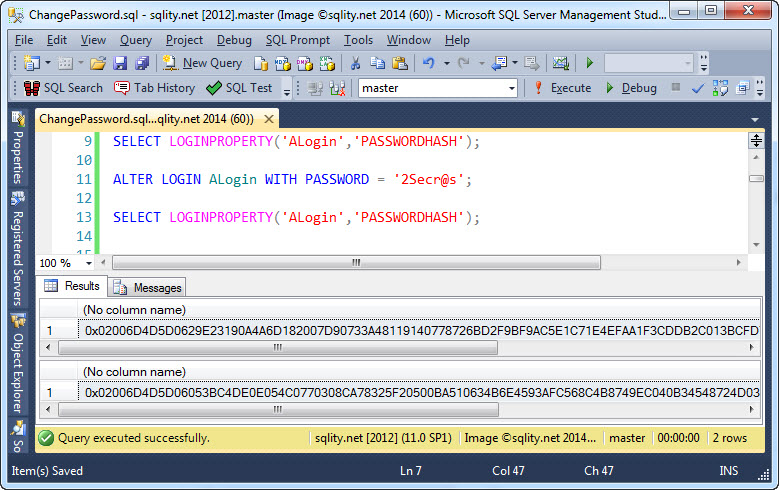
T-sql Query Execution Order
- Aug 07, 2017 EXECUTE (Transact-SQL); 25 minutes to read +3; In this article. APPLIES TO: SQL Server Azure SQL Database Azure SQL Data Warehouse Parallel Data Warehouse Executes a command string or character string within a Transact-SQL batch, or one of the following modules: system stored procedure, user-defined stored procedure, CLR stored procedure, scalar-valued user-defined.
- Mar 16, 2017 To execute the stored procedure, click OK. Using Transact-SQL To execute a stored procedure. Connect to the Database Engine. From the Standard bar, click New Query. Copy and paste the following example into the query window and click Execute. This example shows how to execute a stored procedure that expects one parameter.

What are the real world pros and cons of executing a dynamic SQL command in a stored procedure in SQL Server using
versus
?
Build dynamic SQL in a stored procedure. You can use spexecuteslq to execute transact SQL stored within a variable. The statement form is. This makes the query more flexible and to works with years other than 2011. To make this change, we’ll add a parameter to our stored procedure, as well as the dynamic query.
Anup Kattel5 Answers
sp_executesql is more likely to promote query plan reuse. When using sp_executesql, parameters are explicitly identified in the calling signature. This excellent article descibes this process.
The oft cited reference for many aspects of dynamic sql is Erland Sommarskog's must read: 'The Curse and Blessings of Dynamic SQL'.
Mitch WheatMitch WheatThe big thing about SP_EXECUTESQL is that it allows you to create parameterized queries which is very good if you care about SQL injection.
DJ.DJ.Microsoft's Using sp_executesql article recommends using sp_executesql instead of execute statement.
Because this stored procedure supports parameter substitution, sp_executesql is more versatile than EXECUTE; and because sp_executesql generates execution plans that are more likely to be reused by SQL Server, sp_executesql is more efficient than EXECUTE.
So, the take away: Do not use execute statement. Use sp_executesql.
I would always use sp_executesql these days, all it really is is a wrapper for EXEC which handles parameters & variables.
However do not forget about OPTION RECOMPILE when tuning queries on very large databases, especially where you have data spanned over more than one database and are using a CONSTRAINT to limit index scans.
Unless you use OPTION RECOMPILE, SQL server will attempt to create a 'one size fits all' execution plan for your query, and will run a full index scan each time it is run.
T Sql Execute Sql String

This is much less efficient than a seek, and means it is potentially scanning entire indexes which are constrained to ranges which you are not even querying :@
- Declare the variable
- Set it by your command and add dynamic parts like use parameter values of sp(here @IsMonday and @IsTuesday are sp params)
execute the command